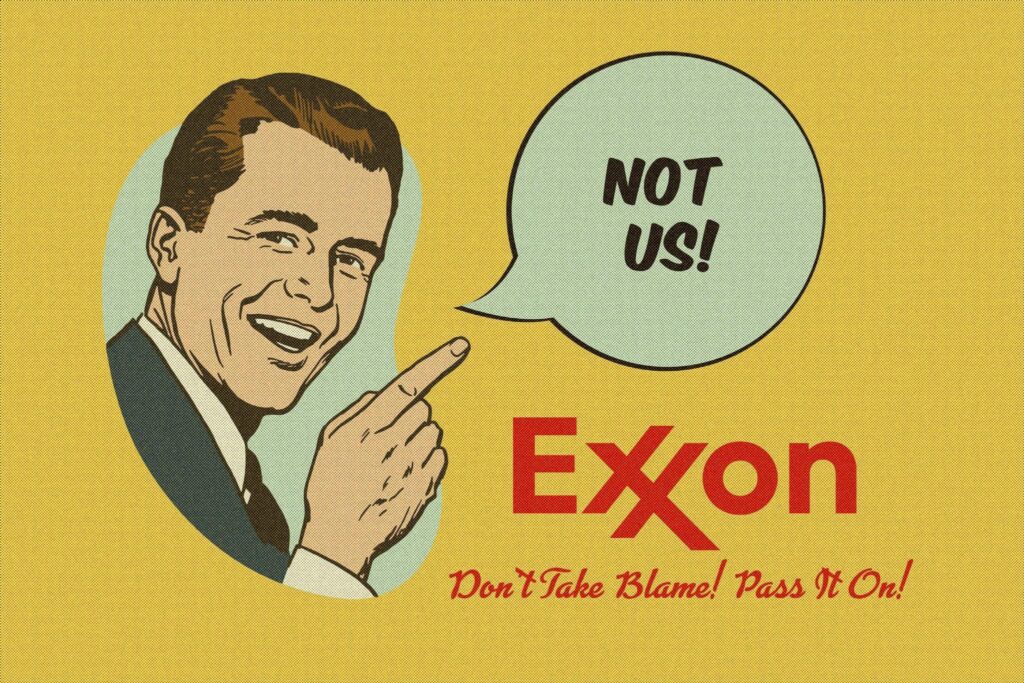As an insurgent sport among the sweat and strain of more traditional exertions, esports — short for electronic sports and synonymous with gaming — had a chance to chart a new course. Free from the sponsorship links with polluting industries that tarnish many established sports, and with an overwhelmingly young and growing player and fanbase, esports could have created a blueprint for sport in the 21st century and the critical climate issues it faces.
Unfortunately, esports have fallen into the same trap as football, cricket, and many other popular but easily exploited sports: It has become a playground for some of the world’s biggest polluters to promote themselves and mislead fans. Competitive gaming has made the leap from dimly lit bedrooms to the world stage, but, in the process, has slipped on an oil slick.
New research from the Badvertising campaign highlights the alarming trend of esportswashing. Taking a cue from the old tobacco industry playbook, major polluters are trying to co-opt a new generation and normalise climate polluting products and lifestyles. Since just 2017, at least 33 polluting sponsorship deals have been struck between the global esports industry and high-carbon polluters. Of these, 27 have been deals with car manufacturers, five with major fossil fuel companies, and two with the armed forces of the United States — the planet’s thirstiest consumer of oil.
Petrostates too, such as Saudi Arabia and Qatar, have sensed the opportunity and spent hugely into the esports sector, sponsoring teams of young gamers and even hosting tournaments in energy-hungry, air-conditioned arenas. In fact, the inaugural Esports World Cup is culminating in Riyadh, Saudi Arabia, where over 1,500 professional gamers have competed across 21 games, with over a million fans following online.
Despite its relative novelty, esports presents a huge opportunity for polluting companies feeling the heat on climate. It is a booming industry. There are already an estimated 500 million esports fans around the world. While this is just a fraction of the three billion active gamers, there is serious room for expansion — and polluters can see the opportunity to groom the next generation.
Shrewd Move
Alongside the massive growth of the industry is the esports loyal fanbase. It’s international, overwhelmingly young, and male. In the UK, over 50 percent of esports fans are aged between 18 and 34, and overwhelmingly male. Globally, in 2021, more than six in every 10 internet users watching esports were aged between 16 and 35 years old. To put this youthfulness in perspective, only one-in-four ‘die hard’ football fans globally are between 25 and 34 years old.
Built around this fanbase is a vibrant digital culture and community, buoyed by the proliferation of streaming platforms and threaded together through memes which are indecipherable to outsiders. Like with all great sports, it is the community that brings esports to life and makes it such a spectacle. Tapping into this community, and leveraging its global digital networks, is a shrewd move for companies clinging to a dwindling social license of public acceptance.
High-carbon industries targeting younger audiences is not new and comes in many forms, but esports presents an opportunity to communicate with hundreds of millions of young and loyal fans. It is an added irony that these young audiences will be the worst hit by climate breakdown — a crisis that the latest sponsor of their beloved esports is disproportionately responsible for.
Once again, regulators are asleep at the controls. The rise of esportswashing and its potential impact on younger minds requires bolder and better advertising regulation and coordination with the game franchises. But action to date has been limited.
The immersive nature of esports presents an added challenge for regulators and the limited scope they currently exercise to protect young people from exploitative influences. In-game advertising blurs the divide between what is advertising and what is the game. Take Shell’s foray into Fortnite in 2023, where players were encouraged to fill up their digital cars at a digital petrol station to promote its V-Power Nitro+ fuel. Here, the advertisement was part of the game. It is only a matter of time before other polluting companies take Shell’s lead.
With esports fans and athletes facing a precarious future in a warmer world, those responsible for this burgeoning sport and the community built around it must take the threat posed by polluting sponsorship seriously. To protect athletes, gamers and fans around the world, esports teams and governing bodies need to align their commercial partnerships with their values, duty of care to players and audiences, and policies for a liveable future and thriving environment. And when top gamers and streamers speak out about their fears of climate breakdown, they should be supported and nurtured.
Esports are on the cusp of repeating the mistake of other traditional sports in letting themselves be used as a billboard to promote polluters, but it is not too late to clean up. Those polluters that are gaming the climate should not be given free reign to game young minds too; or it could soon be game over for everyone.
Andrew Simms is co-director of the New Weather Institute, co-founder of the Badvertising campaign, the Rapid Transition Alliance and assistant director of Scientists for Global Responsibility. Follow on X @AndrewSimms_uk or Mastodon. @[email protected].
Subscribe to our newsletter
Stay up to date with DeSmog news and alerts







